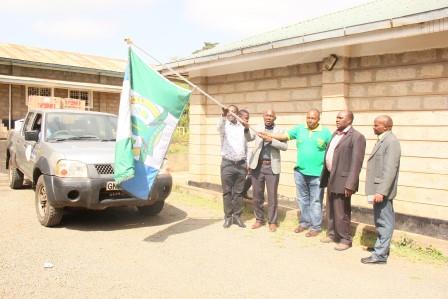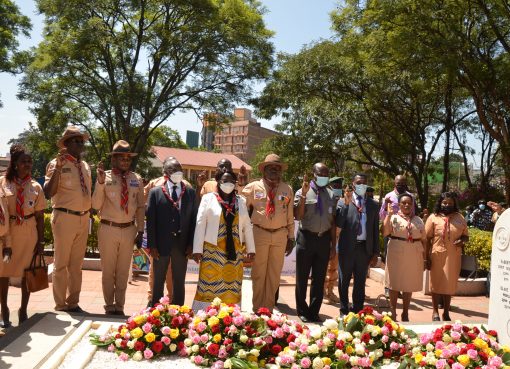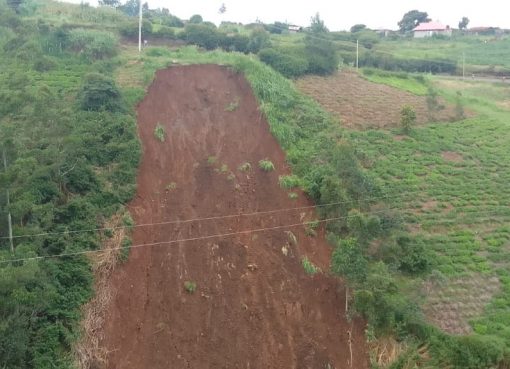A former Traditional Birth Attendant (TBA) has come to terms with the reality that she cannot deal with the complications that may arise while assisting women to deliver. Her knowledge is thoroughly limited.
As a Community Health Volunteer (CHV) now, Naamaso Lenamaiker, is convinced that it is a life-threatening risk to practice her old trade. She operates in Lentanai village, close to Wamba in Samburu County.
“Nowadays, we don’t help you to deliver at home,” she asserts to a group of women of reproductive age, gathered to listen to one of her health talks.
A statement that appears to have jolted her to her senses is, “We’ve been told that should complications arise, we will be held accountable.”
Lenamaiker seeks to persuade expectant women to attend at least four antenatal clinics prescribed by medics prior to delivery.
Christine Nayuyae is among the expectant women that Lenamaiker has sought to care for. “It is risky to deliver at home,” she tells them. “If you deliver at the hospital, you’ll be helped to avoid deaths that may occur.”
Traditional birth attendants can still play a useful role in society. Her efforts and those of others of her kind are becoming increasingly noticeable.
The Maralal County Referral Hospital Superintendent, Dr. Robert Nato, says, “Our uptake of antenatal care (ANC) was around 30 percent, now we are at around 40 percent.” But he regrets because in Samburu County, “A lot of people deliver at home.”
Lenamaiker knows she has to step up her efforts. She still offers help to expectant women, around Lentanai Village, albeit in an alternative way. She’s now a birth companion.
When pregnant women come to her for assistance, she offers to accompany them to a health facility. She knows it is the safest way to help.
According to the Kenya Demographic Health Survey (KDHS) 2014, almost three out of every four (74 percent) of women received antenatal care from a skilled provider, in Samburu County. One out of every four did not.
The report reveals that of the women who attended ANC, a doctor cared for one out of about every 30, a nurse or midwife cared for two out of every three while a CHV attended to one out of every 250.
A skilled health provider offers services during ANC visits that monitor pregnancy to reduce the risk of morbidity for mother and baby during pregnancy and delivery.
“It’s very important for the community to know that antenatal care is important because this is what helps us to be able to identify some danger signs before delivery and after,” says Dr. Nato.
The medic cites an example of someone whose blood group is rhesus negative. “If they don’t go to the hospital, they’d never know,” he says. “If this person delivers, the first child will be alright. Subsequent babies may die or get serious complications after delivery.”
When the date that a health officer has indicated in Nayuyae’s clinic attendance booklet arrives for her to visit a clinic, “I make sure that I go,” she states. “It’s usually every month.”
The Samburu men shun public display of affection for women because they regard it as diminishing to true heroism . They call it Nkaing’onisho. A number of men have qualms about accompanying their women to health facilities. But this trend is slowly changing.
A few men have realised that to be truly heroic, they have to be at the forefront in caring for their expectant spouse during pregnancy, labour and delivery.
Besides having Lenamaiker as a birth companion, as Nayuyae makes her visits to a health facility that might make a difference as to whether she and the baby she’s expecting will live or not, she has another companion by her side—her husband—Silas Lenaloakiti.
Lenaloakiti is a hero in his own way. He does what many men in Samburu do not; accompanying his wife to a health facility for her ANC visits.
“The first time my wife went to the clinic, she did so alone,” he says. The second time, the birth companion came in. “I requested that I accompany them.”
The turnaround in attitude is partly attributed to the work by Community Health Extension Workers (CHEWs) who have been carrying out campaigns in the villages on how important it is for men to accompany their spouse for medical attention. The CHEWs have been working closely with CHVs.
Lenamaiker, Nayuyae and Lenaloakiti are now aware that regular antenatal care is helpful in identifying and preventing adverse pregnancy outcomes when it is sought early during pregnancy and is continued until delivery.
An ambulance is on standby at some health facilities within the county as at Wamba Health Centre. Lenamaiker impresses upon her audiences that when emergency situations arise, swift action is required.
A pregnant woman’s life may be at risk. Lenamaiker doesn’t want chances to be taken. Calling an ambulance should be promptly done. Care by a skilled provider—a doctor, a nurse or a midwife may come in the form of first aid while a patient is being picked and ferried to a health facility.
After Lenamaiker has assisted couples, their hope is that all will go well with the delivery of the baby being awaited.
By William Inganga




